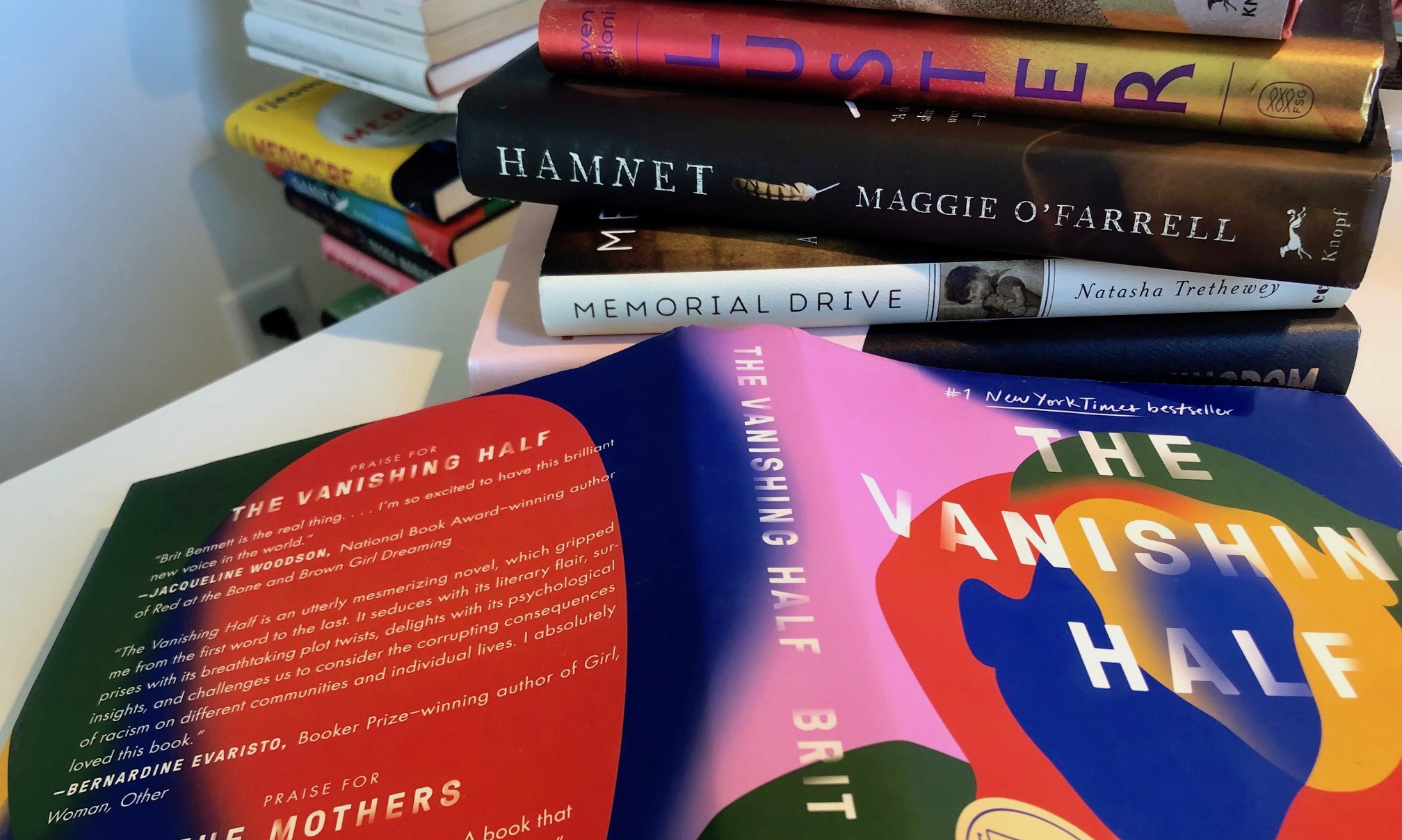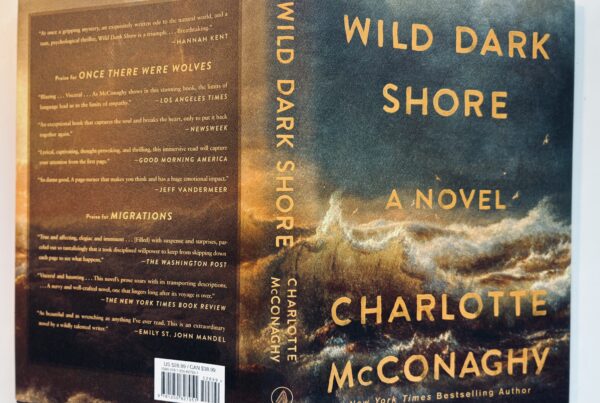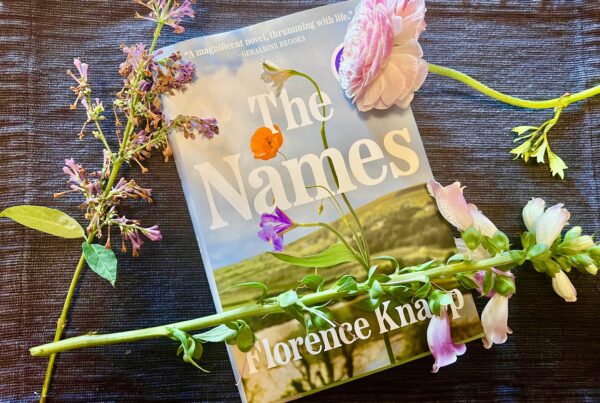Reading has always been sewn in with socioeconomic status and identity, and this year was no different, although the year itself was like no other in our lifetime. As the pandemic spread across the globe, it impacted individuals in very different ways, bringing fear, illness, and death to some while sparing others partially or completely. Due to changes in our work and family lives, many of us found ourselves contending with confusing, unanticipated abundances and losses. Some of us read voraciously. Others, not a word. Because bookclique is a collaborative of teachers, students & writers, we know that a regular schedule can soothe an anxious mind, so despite moments of chaos in our work and family lives, we kept our weekly posts going and hope that you took from them whatever you needed.
As we turn the page on a year too disorienting and cliff-hanging to be made sense of yet, we wanted to recommend a particularly impactful book, Brit Bennett’s The Vanishing Half, to close out 2020. The book is about twins Desiree and Stella, two halves of a whole that is torn apart when as a young woman Stella leaves the life she shared with Desiree without a word or a forwarding address. Stella’s disappearance is deeply unsettling, well after we find her living in safety and physical comfort in California with her husband and their daughter. Not forced or cajoled, Stella herself erased her ties to her family’s light-skinned-Black community in Mallard, Louisiana, choosing to pass as White and leaving her sister and family to reconcile themselves to their abandonment while building their own lives.
The best books resonate with other great books that came before them, engaging in subtle and powerful intertextual dialogue, and Bennett’s luminous book is no different as it pays homage to great American works by Zora Neale Hurston, Nella Larson, Toni Morrison, and more. Like other “best” books, The Vanishing Half also somehow illuminates the complexity of the present moment — in particular, 2020’s urgent reckoning with systemic injustice and racism and the more widespread acknowledgment that an unmitigated and unforgivable history of violence against Black Americans continues to author painful confrontations and loss of life today.
In The Vanishing Half, a beloved family and community member leaves. Understanding Stella’s choice as her own necessity helps us to pay better attention to the people in our lives right now, and to try not to take their presence for granted, as it can so quickly become an absence. Temporary or permanent, when people leave our lives, we are never quite the same. Great books can have the same impact on us. Below are just some of our reviews from the year that at this moment, in many ways defies words.
-
- Ann Klotz, Reading During a Pandemic
- Kevin Wilson, Nothing to See Here
- Yoko Ogawa, Revenge
- Erin Morgenstern, The Starless Sea
- Valeria Luiselli, The Lost Children Archive
- Samra Habib, We Have Always Been Here
- Chanel Miller, Know My Name
- Julia Phillips, Disappearing Earth
- Richard Powers, The Overstory
- Jia Tolentino, Trick Mirror
- Kate Elizabeth Russell, My Dark Vanessa
- Emily St. John Mandel, The Glass Hotel
- Ariel Lawhorn, Code Name Helene
- Nic Stone, Dear Justyce
- Jenny Offill, Weather
- Barbara Kingsolver, Unsheltered
- Hilary Mantel, The Mirror and the Light
- Erik Larson, The Splendid and the Vile
- Julia Alvarez, Afterlife
- Natasha Tretheway, Memorial Drive
- Sarah Broome, The Yellow House
- Vivek Shraya, The Subtweet
- Matt Haig, The Midnight Library
- Susanna Clarke, Piranesi
- Ian McEwan, Machines Like Me
- Alice Wong, Disability Visibility
- Christina Baker Kline, The Exiles
- Elena Ferrante, The Lying Life of Adults
- Roxane Gay, Selected Works of Audre Lorde
- Sigrid Nunez, What Are You Going Through?
- Silvia Moreno-Garcia, Mexican Gothic
- Ann Klotz, Bits of Inspiration




